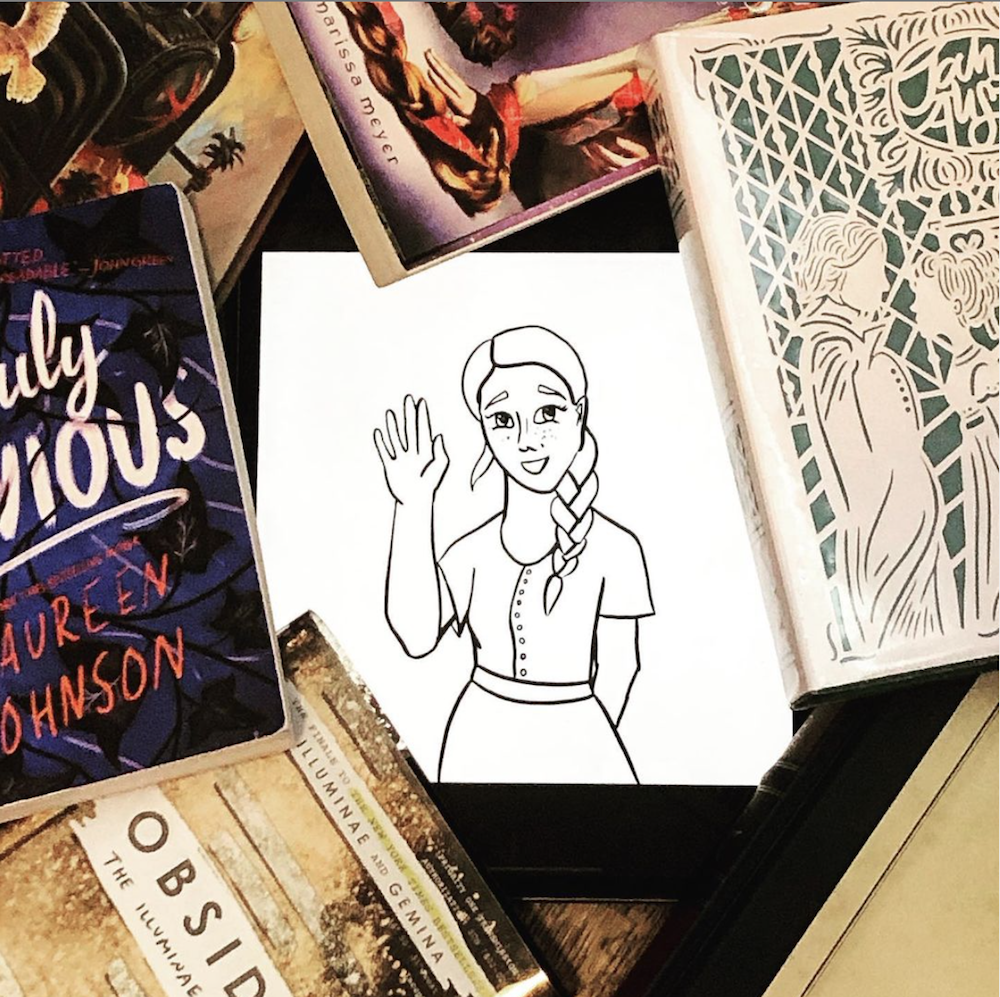
From the New York Times bestselling author of We Were Liars and Genuine Fraud comes a complex novel about acceptance, forgiveness, self-discovery, and possibility, as a teenage girl attempts to regain some sense of normalcy in her life after a family crisis and a broken heart.
If you could live your life again, what would you do differently?
After a near-fatal family catastrophe and an unexpected romantic upheaval, Adelaide Buchwald finds herself catapulted into a summer of wild possibility, during which she will fall in and out of love a thousand times–while finally confronting the secrets she keeps, her ideas about love, and the weird grandiosity of the human mind.
A raw, funny story that will surprise you over and over, Again Again gives us an indelible heroine grappling with the terrible and wonderful problem of loving other people.
Tl;dr summary:
Again Again, by E. Lockhart, follows Adelaide Buchwald while she stays at the boarding school that she attends and where her father works for the summer. Her boyfriend of 7.5 months has just broken up with her, and she is still struggling in the wake of her younger brother’s addiction and entry into rehab a year and a half prior.
I was very hopeful about this going into reading it.
Although I absolutely despised We Were Liars, which is the only other book of E. Lockhart’s that I’ve read, I was still optimistic going into Again Again. I usually love books set at boarding schools, since I attend one myself, and I thought that the structure of the book sounded very promising and unique.
The narrative structure is rooted in the multiverse theory
The book is centered around a gimmick where the story occasionally splits into possible variations on the current moment based on different choices the characters make, which is ostensibly supposed to be a sort of commentary on the multiverse theory. As a result of its split-continuity nature, the book ends up having very little overall plot or character evolution, which makes it feel very non-cohesive as a work. I can appreciate the attempt to create an exploration of this sort of gimmick, but it would perhaps have leant itself better to a shorter work, then attempting to expand it into a full novel.
The characters, though underdeveloped, were distinct and interesting
Though Adelaide is the protagonist, the nature of the story means I have very little to say about her, since the reader ends up reading up to a dozen versions of the same few events. She talks about her view of her own personality, describing herself as covering up her sadness with a “sparkly, talky persona,” but the reader never ends up seeing that for themselves, and in what few interactions we witness, she comes off as rather bland. Her internal monologue, reckoning with a desire to be loved and a certain lack of centrality she’s felt since her brother went into rehab, was perhaps the most interesting point of her character. However, that wasn’t really sufficient to make her a compelling-enough character to be able to carry the novel through the narrative structure created by its multiverses.
The other characters were perhaps better served by the nature of the narrative. Toby, Adelaide’s brother, was rarely actually present, instead appearing through his texts to Adelaide for the majority of the book. While Adelaide is struggling with the affects that his addiction had on her, he is struggling with the distance he now has from his sister and almost everybody else in his life, and their relationship is definitely the most interesting thing about this book. The places where the multiverse structure elaborated on different possible paths he could have taken are the sections where the novel’s structure serves it best, and likely should have been more at the forefront than they are.
Jack, Adelaide’s love interest in most of the book’s scenarios, is frankly unlikeable, and Adelaide’s semi-obsessional interest in him must be taken as a rebound crush in the wake of her break-up. He seems to be shown as a sort of mirror to Adelaide’s struggles, but it is difficult to find sympathy for him in almost any of the timelines that the book explores. Similarly, Oscar, another of her love interests, while much more likable, is not given the page time necessary to make him seem a fleshed out character, or to allow the reader to become invested in his story at all.
Though aspects of the novel are very promising, I found it overall to be underwhelming.
As I mentioned above, I was very intrigued by some aspects of the story, but they were unfortunately drowned out by the noise of exploring dozens of possible scenarios of how Adelaide’s initial encounter with Jack at the dog park could have gone. If this had taken the form of a short story or novella that retained the structure, but focused much more on Adelaide’s relationship with her brother and their corresponding struggles than it did on her boy problems, I feel it would have been a much more compelling work. As it is, I still enjoyed the process of reading the book, but felt throughout that the strongest aspects of it were being criminally underserved, and that I overall could not bring myself to be invested in the main aspects of the book, which seemed to be Adelaide’s various potential relationships. Altogether, I give it three stars, since there were definitely aspects of it that I enjoyed, but I overall felt like it could have been a more compelling and put-together story with some shifts in its focus.







Recent Comments